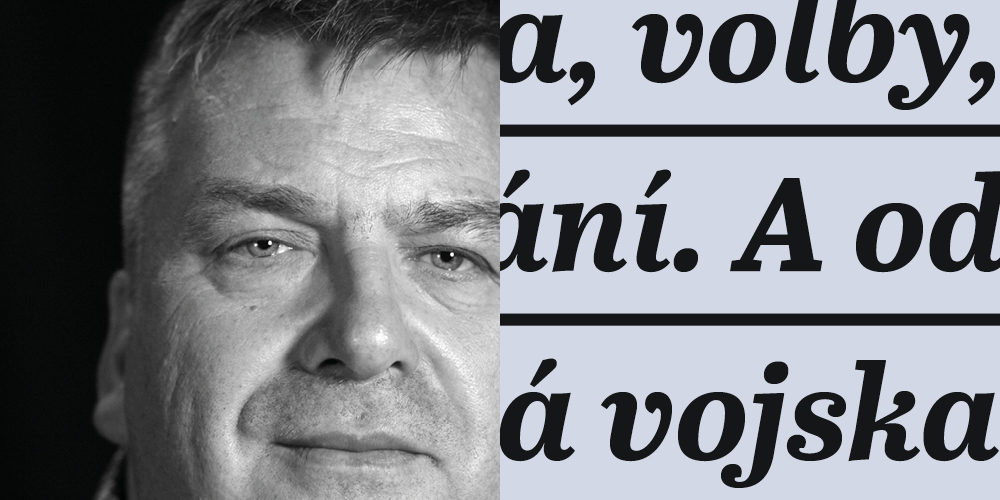
During a Czechoslovak People’s Army exercise in the Soviet deserts of Karakum and Kyzylkum in the summer of 1988, weapons systems operator Corporal Petr Klimeš made a mistake that made him the target of the officers’ anger. After a mistake of his during heavy firing, an air defense unit shot down an unmanned aircraft. The “higher ups” lost their bonuses and promotions, and the “grunts” lost the chance to go home for a few days as a reward. “There were punishments and I was put in jail for a week in Bohemia. But I only had twenty days left until civilian life, so I didn’t make much of it,” Petr Klimeš recalls. “I just felt sorry for the boys that they didn’t get to leave.”
A few months later, in November 1989, Petr Klimeš founded a local division of the Civic Forum in his hometown of Polička. The following spring, he was co-opted to the town council, and in the first free elections in June 1990 he ran for parliament. The removal of the occupying Soviet troops became a hot topic in the region. Thousands of tons of ammunition were hidden in perfectly camouflaged military warehouses near the village of Květná near Polička. They were also lying in underground bunkers and had to disappear by mid-1991.
Petr Klimeš, as a local politician, was involved in this matter. Hundreds of wagons with military arsenal were heading east from Květná. The clearing of the warehouses was carried out under strict secrecy.
“It was a great experience for me, as a reserve corporal, when the top brass of our army and the Soviet troops were following my orders.”
Departure
In the 1980s, communist regimes were collapsing economically and socially. Falling behind the free world could no longer be disguised, and citizens invoked their rights. Rumors of change were coming from the Soviet Union in the era of Mikhail Gorbachev. Our country had been ruled for a second decade by the same set of normalization apparatchiks, who until then had devotedly listened to their comrades from Moscow, but did not want to hear about so-called perestroika – reconstruction.
When the totalitarian regime in our country began to collapse in November and December 1989 under the enormous onslaught of civil unrest, almost 80,000 Soviet soldiers, on whose threat the local regime relied, remained in the barracks – they were ordered not to intervene. In February 1990, the new president, Václav Havel, arrived in Moscow for an official visit. The Soviets apologized for the occupation in August 1968, and the foreign ministers concluded an agreement on the withdrawal of Soviet troops from Czechoslovakia. The negotiations were attended by the MP and musician Michael Kocáb. On 24 June 1991, to celebrate the event, he organized a concert with his band Pražský výběr in Prague’s Sport Hall, with the world-famous rocker Frank Zappa as a guest, and the whole show ended with the symbolic departure of a dummy of a Soviet soldier in a helicopter. Three days later, the real “last Soviet soldier,” Eduard Arkadyevich Vorobyov, the commander of the Central Group, left our country. In total, 73,500 Soviet soldiers, 39,000 of their family members, 1,220 tanks, 2,500 infantry combat vehicles, 105 aircraft, 175 helicopters and 95,000 tons of ammunition left Czechoslovakia.



